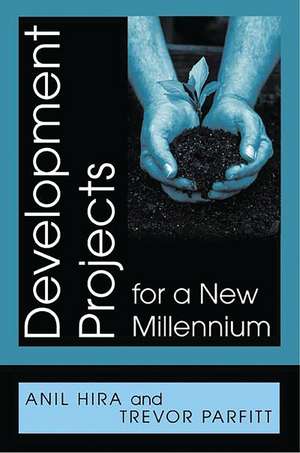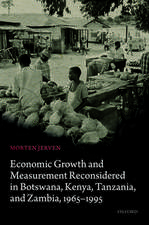Development Projects for a New Millennium
Autor Anil Hira, Trevor Parfitten Limba Engleză Paperback – 29 mai 2004 – vârsta până la 17 ani
| Toate formatele și edițiile | Preț | Express |
|---|---|---|
| Paperback (1) | 237.44 lei 43-57 zile | |
| Bloomsbury Publishing – 29 mai 2004 | 237.44 lei 43-57 zile | |
| Hardback (1) | 497.64 lei 43-57 zile | |
| Bloomsbury Publishing – 29 mai 2004 | 497.64 lei 43-57 zile |
Preț: 237.44 lei
Preț vechi: 292.03 lei
-19% Nou
Puncte Express: 356
Preț estimativ în valută:
45.44€ • 47.26$ • 37.51£
45.44€ • 47.26$ • 37.51£
Carte tipărită la comandă
Livrare economică 14-28 aprilie
Preluare comenzi: 021 569.72.76
Specificații
ISBN-13: 9780275975036
ISBN-10: 0275975037
Pagini: 216
Dimensiuni: 156 x 235 x 17 mm
Greutate: 0.35 kg
Editura: Bloomsbury Publishing
Colecția Praeger
Locul publicării:New York, United States
ISBN-10: 0275975037
Pagini: 216
Dimensiuni: 156 x 235 x 17 mm
Greutate: 0.35 kg
Editura: Bloomsbury Publishing
Colecția Praeger
Locul publicării:New York, United States
Notă biografică
ANIL HIRA is Assistant Professor in the Department of Political Science and Latin American Studies at Simon Fraser University. After working in a variety of public administration posts, Professor Hira taught development courses at the American University in Cairo, Tulane University, and Simon Fraser. Among his earlier publications are Ideas and Economic Policy in Latin America (Praeger, 1998) and Political Economy of Energy in the Southern Cone (Praeger, 2003).TREVOR PARFITT is Director of the Master's Program in Development at the American University in Cairo. Professor Parfitt has worked as a consultant for a variety of development organizations, including the United Nations' Development Programme and the United States Agency for International Development. Among his publications is the forthcoming Towards Postmodern Ethics for Development.
Cuprins
IllustrationsAcknowledgmentsIntroduction: Development Aid in the Post-Cold War EraThe Project Approach to Development: A Blunted Edge?The Environment and Sustainable DevelopmentCan Development Organizations Be Reinvented?ParticipationThe Growth of Gender Perspectives in DevelopmentHow to Help a Failing Patient: The Difficult State of Evaluation in Development ProjectsNotesSelected BibliographyIndex






















